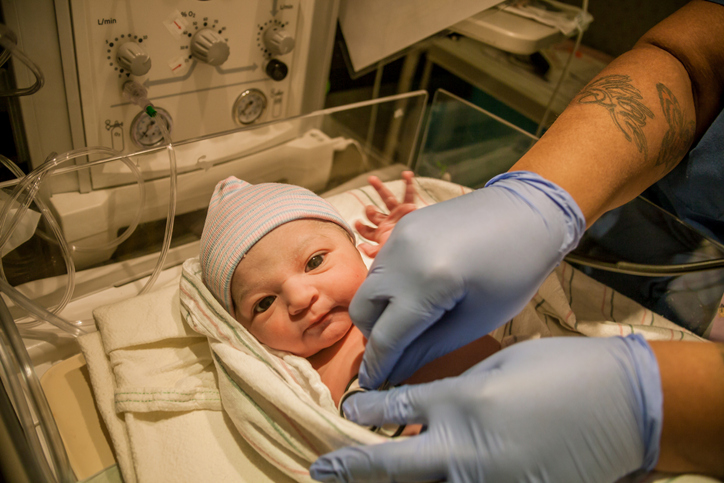As the Internet continues to explode with false stories, proven medical science is sometimes labeled as “unnecessary” or “unnatural.” Lately, there has been a rise in parents questioning the necessity of a Vitamin K shot shortly after the birth of their child.
At Alzein Pediatrics, we completely understand your concerns about exposing your very precious and fragile newborn to this common medical intervention, so we are here to explain how this ground-breaking, miracle intervention has saved the lives of millions of children over the years – and how the Vitamin K shot still saves lives today.
Why does my baby need a Vitamin K shot?
Every baby is born with an extremely low level of Vitamin K stored in their body, and Vitamin K is vitally important to the clotting of blood. Without vitamin K, your infant could experience Vitamin K deficiency bleeding, or VKDB. Giving newborns a “booster” of Vitamin K at birth literally boosts the amount of Vitamin K available in your baby’s body for months, giving them the ability to much more effectively clot internal and external bleeding.
What exactly is VKDB?
VKDB can occur on the inside or outside of the body. Babies without a Vitamin K shot will not be able to stop bleeding because their blood cannot clot properly.
- Early VKDB occurs within the first 24 hours after birth and is very severe. It’s common in newborns whose mothers may have used medicines or substances that interfere with the absorption of Vitamin K.
- Classical VKDB occurs between 1-7 days after birth and can be evidenced by bruising anywhere in the body or bleeding from the umbilical cord stump.
- Late VKDB can occur anywhere between 2 weeks to 6 months after birth, and up to 60% of these children have bleeding in the brain, with little or no warning symptoms. Late VKDB is most common in breastfed-only babies who have not received the Vitamin K injection.
Can’t I just wait to see if my infant develops a problem?
If a parent refuses the Vitamin K injection and then sees bruising, blood in stool or urine, a bleeding umbilical stump that won’t stop, or excessive sleepiness, it’s too late to completely reverse the effects of internal bleeding – and the Vitamin K shot that would be used to treat your child.
Is VKDB really that big of a concern?
Before the link to Vitamin K and “hemorrhagic disease of the newborn” was made in 1944, and before 1961 when the Vitamin K injection became standard under the recommendation of the American Academy of Pediatrics, babies died or became disabled from VKDB. About 1 in 5 babies who develop VKDB die and two of every five that do survive will have long-term brain damage.
Can’t my baby get Vitamin K by mouth instead of a shot?
Oral Vitamin K is not nearly as effective against VKDB, especially for Late VKDB. The Vitamin K in the injection is better absorbed and lasts longer in your baby’s system. Additionally, oral Vitamin K has to be given in three precisely timed dosages – which are easily forgotten or delayed if Baby is sleeping, feeding or crying.
Accepting the Vitamin K shot, administered into your newborn’s thigh, gives your precious baby’s blood the ability to clot. It avoids deadly or debilitating internal, nearly undetectable hemorrhaging in the brain and organs. The Vitamin K injection protects your child’s life!
Do you still have questions about the Vitamin K shot?
Call our office at 708-424-7600 or click here to make an appointment to discuss your concerns about vitamin K shot or other nutrition. At Alzein Pediatrics, we are always happy to help!


